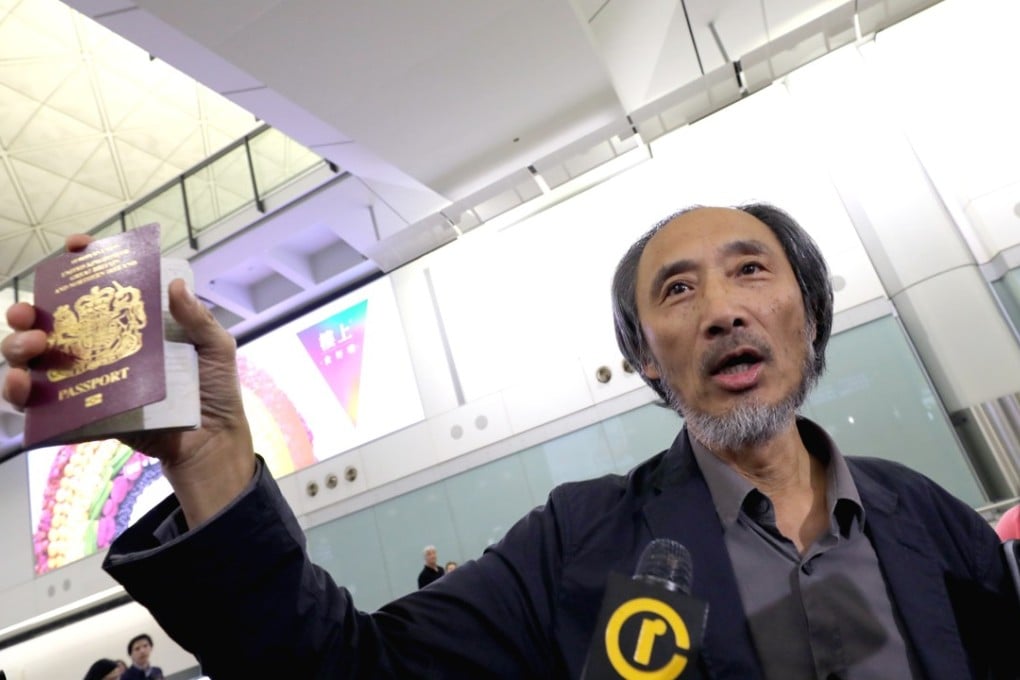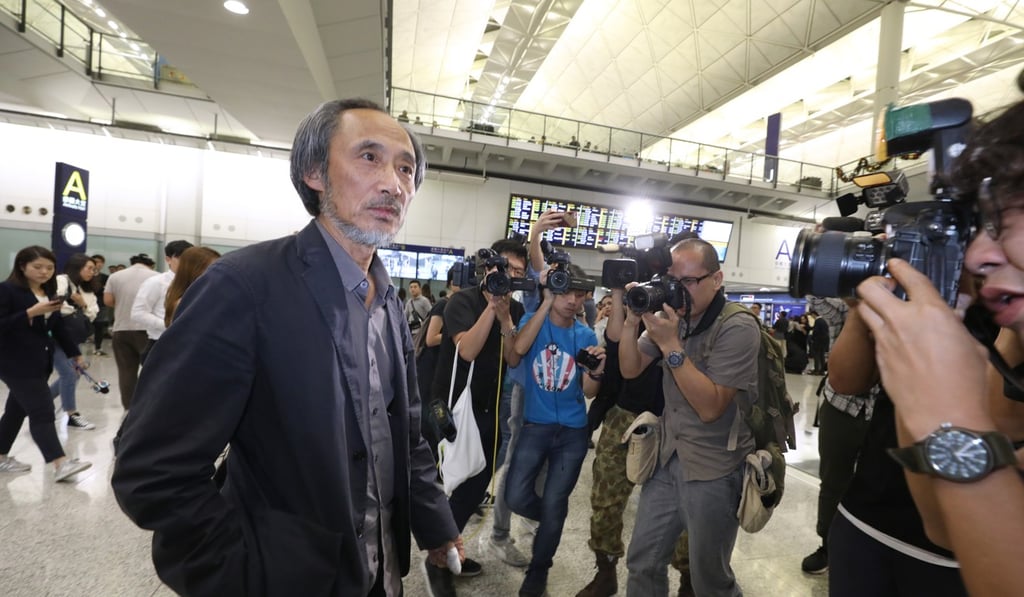Dissident Chinese writer Ma Jian lands in Hong Kong as Tai Kwun cultural centre reverses decision not to host his talks
- Arts venue in Central has rethink and offers to host novelist for Hong Kong International Literary Festival events
- Stand-in venue The Annex had earlier said it would not host the talks

One of two venues which had refused to host talks by Chinese dissident writer Ma Jian did a U-turn on Friday night, saying management had changed their minds because the author had “clarified” that his events were not intended to promote his political interests.
The about-face by Tai Kwun was made about two hours after Ma, 65, flew in from London on a British Airways flight at 5.40pm.

Timothy Calnin, director of the arts centre, had previously said he “did not want Tai Kwun to become a platform to promote the political interests of any individual”.
But on Friday he said Ma had clarified he had no intention of using the event to promote his political interests, so Tai Kwun was reversing its earlier decision.
I have decided to offer our venue for the two talks so that the events may continue to take place as planned
“With this in mind, as director of Tai Kwun, I have decided to offer our venue for the two talks so that the events may continue to take place as planned. I would like to thank Tai Kwun’s supporters for their valuable opinions over the past few days and I would like to apologise for any inconvenience caused,” Calnin said.